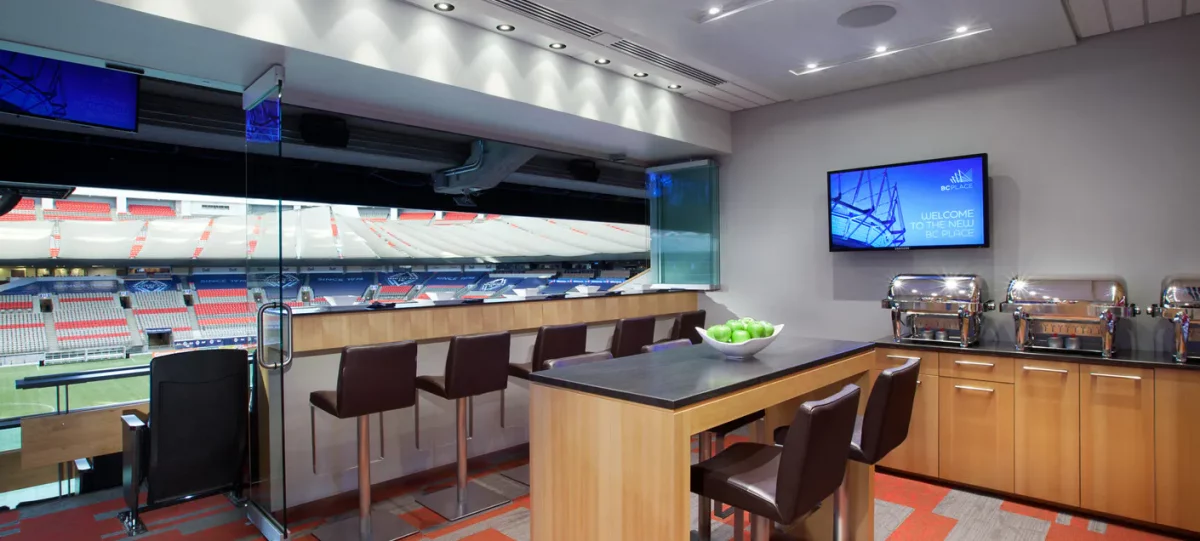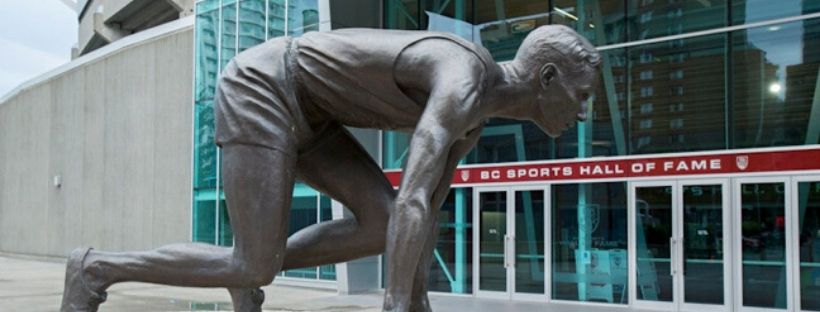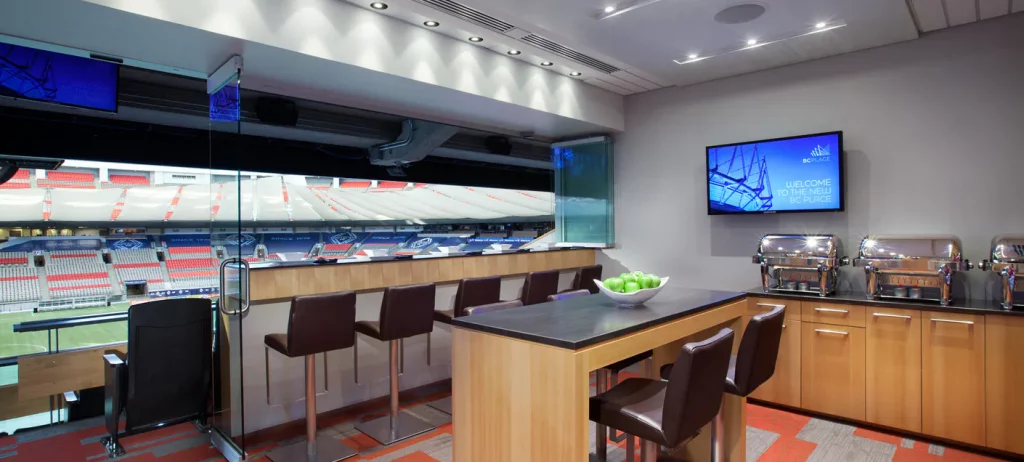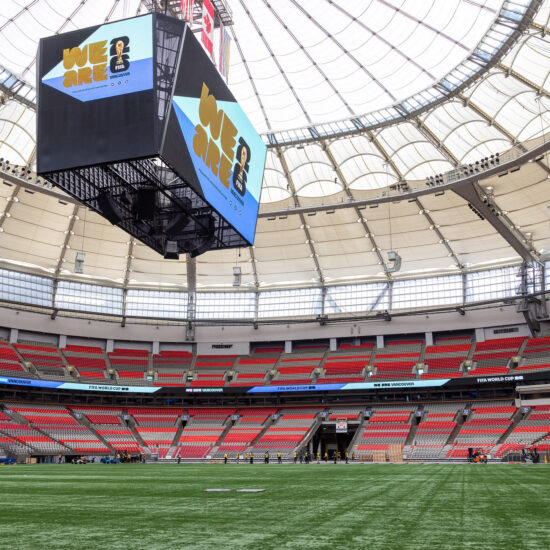
Bob Mackin
When B.C. Place Stadium hosted the Women’s World Cup in 2015, FIFA’s contract prohibited the B.C. Sports Hall of Fame from opening on match days.
When FIFA returns for the next men’s World Cup in 2026, the province’s sports shrine will likely be smaller.

B.C. Sports Hall of Fame at B.C. Place (Facebook)
According to two sources not authorized to speak publicly, the Crown corporation that runs the stadium is planning to expand the Pacific Rim private suites on level 3 in time for the stadium to be one of the 16 venues for the North America-hosted tournament. FIFA is expected to schedule five matches in the early rounds in Vancouver.
B.C. Pavilion Corporation [PavCo] had originally proposed relocating the entire Sports Hall but has since narrowed its sights on the back-of-house, archival storage area.
B.C. Place already has 50 private furnished and catered suites that hold between 10 and 24 people. During the recent 2022 World Cup in Qatar, FIFA subcontracted high-end ticket packages and VIP hospitality to the Swiss company Match Hospitality.
A spokeswoman for PavCo did not deny the suite expansion concept.
“We are in the process of planning for projects required to host the FIFA World Cup 2026 at B.C. Place in conjunction with our partners, those plans and associated budgets are not finalized at this time,” said Meaghan Benmore in a prepared statement. “We have a very collaborative working relationship with the B.C. Sports Hall of Fame and will continue to work closely with them regarding the space that they rent within B.C. Place.”

Inside a B.C. Place Pacific Rim suite (PavCo)
The Sports Hall’s CEO also did not deny that suites could replace part of his facility.
“The B.C. Sports Hall of Fame has a collaborative relationship with B.C. Place,” said Nicholas Cartmell. “We have ongoing discussions about a range of matters, but it’s too early to speculate on what the future may hold for space we hold within B.C. Place to house our archives.”
During the 2015 Women’s World Cup, FIFA exerted its strict guidelines for third party operations inside official venues to prevent the Sports Hall from opening on match days. Part of the Sports Hall’s compensation in 2015 was display space at the FIFA FanFest in Larwill Park on game days.
“FIFA ‘owns’ the building right now,” then-Sports Hall executive director Allison Mailer conceded in a 2015 interview.
During the 2010 Winter Olympics, the Sports Hall opened limited hours behind security barriers while B.C. Place hosted opening, closing and nightly medals ceremonies.
When FIFA chose Vancouver last June, the provincial government said the cost to taxpayers would be $240 million to $260 million. But, in January, it revealed that Vancouver city hall was responsible for $230 million in costs and would use a new 2.5% civic accommodation tax to pay the bill by 2030. The province did not disclosed how much it is spending.
Support theBreaker.news for as low as $2 a month on Patreon. Find out how. Click here.











